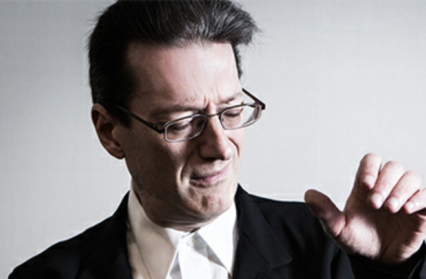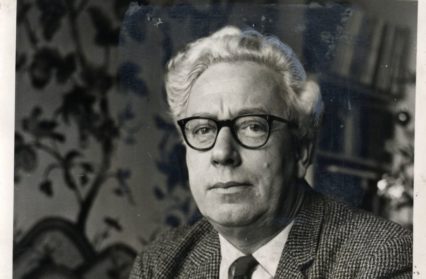David Truslove casts a critical eye over a Llŷr Williams recital, as he chooses two works by Franz Schubert for a specially recorded Wigmore Hall performance.
Widely regarded for his eclectic repertoire and acclaimed for his impeccable technique, Welsh pianist Llŷr Williams chose two works by Franz Schubert for a specially recorded Wigmore Hall recital made earlier this year and streamed on Thursday 1st April. Schubert has been a major preoccupation for Williams who has, in recent years, recorded an eight-disc set of the composer’s piano music for Signum, mostly derived from concerts presented at the Royal Welsh College of Music and Drama.
This Wigmore performance comprised two late sonatas, each with their own distinct character, one affable the other volatile, the latter conceived during what Benjamin Britten described as the ‘richest and most productive eighteen months in music history’.
Williams began with the Fantasie Sonata in G, D894, written in October 1826 (the same year as his ‘Great’ C major Symphony), and one of only three of Schubert’s twenty-one sonatas to be published during his lifetime. Robert Schumann believed the sonata as a genre had outlived its life cycle, but as an ardent admirer of Schubert he described this four-movement work as his ‘most perfect in form and conception’. But with a shrewd eye for increased sales, the publisher Tobias Haslinger issued the work as a set of character pieces and circulated them as ‘Fantasie’, ‘Andante’, ‘Menuetto’ and ‘Allegretto’, since which time the moniker ‘Fantasie’ has remained appended to the whole work.
The opening Molto moderato was given a reading of calm authority and technical assurance, if at times skating over its emotional ambiguities and lacking warmth of expression. There is a deep intimacy, even magic, present in its first bars, its solemn invention variously confides and consoles, depending on how a pianist calibrates tonal weight.
Written just over a year before his early death, there’s a temptation to overlay Schubert’s late music with premonitions of the grim reaper and fashion an overly romantic interpretation. One might imagine a tolling bell in those opening bars, but Williams played it straight, without imposing himself on the music, nor looking for meanings that are not necessarily there. This, then, was a forward moving, unsentimental account, not without drama and its tensions deftly integrated into the whole. The ensuing ‘Andante’ was affable enough, Williams grading dynamics with care and applying a measured attitude to impetuous passages, yet a little too bloodless for my taste. Schubert’s ‘Menuetto’ is a somewhat laboured affair, yet its repeated chords were crisply articulated, and the delicate introspection of the ‘Trio’ eloquently fashioned. Its sense of decorum is abandoned in the closing Rondo, where Williams found some much-needed sparkle, bringing out its folk-like character with a rewarding spring in its step.
The Piano Sonata in C minor D.958 was begun the following year in September 1827 and affords a striking change of mood. Gone is the homespun disposition, replaced by a work of temperamental energy, its turbulence a recurring presence most notably in the Beethovenian first movement. From the explosive opening bars Williams did not hold back; muscular chords and crystal-clear octaves propelled an involving account of sustained interest, details scrupulously observed (exposition repeated), with the lyrical second subject given tender consideration, the whole well judged.
There was much to enjoy in the poetic unfolding of the Adagio, Williams spinning an unbroken melodic thread and fully responsive to the movement’s intensity. After a sober ‘Menuetto’, scintillation followed in a well-paced tarantella, its galloping rhythms never outstaying their welcome. Williams built a tension-filled movement of accumulating power, bringing with it echoes of Beethoven and even hints of Franz Liszt who himself once declared Schubert ‘the most poetic musician who ever lived’.
It was in fact Liszt Williams chose as an encore, offering his transcription of Schubert’s ‘Litany’ (one of his Geistliche Lieder or ‘Spiritual Songs’) setting verses by the German poet Johann George Jacobi for the Feast of All Souls. Its devotional restraint was readily apparent from the rapt unfolding of the song’s long-breathed lines – an exquisite pianistic prayer for Holy Week. Just a pity his smoothly applied cantabile failed to emerge more persuasively earlier in this recital.
Daniel Jones’ Symphonies Nos. 3 and 5 – David Truslove reviews the latest remastering of Daniel Jones’ work and finds it well served by Lyrita’s continued championing.
This archived performance is free to view from the Wigmore Hall until May 1st.
David Truslove is a critic and regular contributor to Wales Arts Review.












